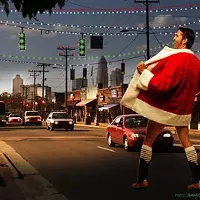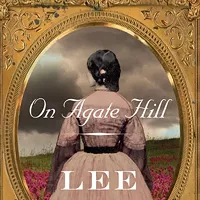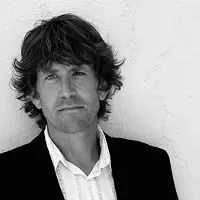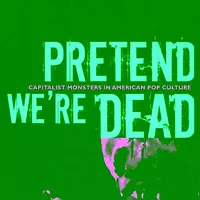The past several weeks there's been a part of me -- a part of many of us, I suspect -- sitting on the floor in a dismal corner of my mind, arms wrapped around my knees, rocking in no light but the blues and reds from the TV telling me of the latest places where we're killing one another. Add Lebanon and Israel to Iraq and Afghanistan and the genocidal countries in Africa whose names we can't be bothered to learn. Perhaps also faint recollections that all is not well in Central America, in South Asia -- that among all the continents, only Antarctica knows some measure of brutal peace and now city-sized chunks are breaking off of it and putting the penguins in peril. Yet this morning as I write, all the news can talk about is JonBenet Ramsey, a single little blonde white girl who died 10 years ago.
"There's something wrong with us," says ornithologist John Blair to one of his Colombian captors as the two watch over the hatching of some endangered parrots near a guerrilla camp. "With us. People. The human race." This is in "Near-Extinct Birds of the Central Cordillera," one of a collection of short stories in Ben Fountain's Brief Encounters with Ché Guevara. Blair had convinced his seemingly righteous army of kidnappers to allow him to continue the research that had brought him to Colombia. After discovering a community of parrots that many ornithologists had assumed to be extinct, Fountain tries to enlist the army to protect the parrots' habitat. A good PR move for them, he argues, to be seen by the world as defenders of the environment. No fan of American neo-imperialism, the World Bank, or the repressive government in place in Colombia, Blair is sympathetic to the rebel movement. Then the Americans invade in helicopters ... not American soldiers, but businessmen: the chairman of the New York Stock Exchange and representatives of Weyerhauser. They cut a deal with the guerrillas for all the lumber in the region, money for more weapons at the expense of the parrots' habitat. Though he is sent home with the Americans, Blair is devastated. "That ultimate grief which everyone saves for the end, Blair was spending it, burning through all his reserves."
Fountain's stories live in hopeless places. Many are either set in or otherwise connected to Haiti, a country whose tragedies can turn even the most stalwart of aid workers to cynicism. But wherever they are, his characters are people who have yet held onto at least some tissue of empathy, some shroud of a sense that the difference between right and wrong matters and is not determined by the proclamations of those with the most money or the biggest guns.
In "Asian Tiger," Fountain brings a washed up golf pro named Sonny Grous to Myanmar (formerly Burma), where he unwittingly gets wrapped up in a deal to sell the rights of the country's natural gas reserves to a multinational, in an exchange that will greatly enrich the golf-obsessed generals who run the country. When Sonny discovers how he has been used, he wonders whether he should give back the $75,000 he was paid (a pittance in the multi-billion-dollar deal) for his part in the scheme. He ends up feeling "like he wasn't allowed to hope."
There's nothing resembling optimism or energetic idealism in any of the stories, but some do hold out a measure of tightly bounded hope. In "The Good Ones Are Already Taken," the Fayetteville, NC, wife of a Green Beret comes to understand her husband's "marriage" to a voodoo goddess during his time posted in Haiti. And in "Bouki and the Cocaine," two Haitian fishermen twice try to do the right thing by turning over cocaine drops they find on the beach, first to a police chief and then to a former priest turned senator. Both soon show up in fancy new vehicles, surrounded by other shiny, deadly things. So the third time they find a cocaine drop, they put one over on the authorities, turning the absurdity of the situation to better ends, though still with an assured understanding that any victory is only temporary.
"I had no idea God and the Devil live so close together," a dead Ché Guevara tells his assassin in the title story. "It's us they bet on when they sit down to cards." Fountain offers no solutions or transcendence, just maybe a way to keep alive that part of us that still gives a damn even when all hope is lost. "Réfléchi [reflection]," says one of the Haitian fishermen, "that was better than direct thinking for the world of problems you could never solve." Not much comfort, that, not much help to anyone either, but for those of us rocking in corners these days, perhaps it's the best we can do.
Brief Encounters with Che Guevara
Ben Fountain (Ecco. 229 pages, $24.95)
Speaking of 3.00000
-

You're Getting Warmer
Dec 12, 2007 -
When White Folks Mess Up
Dec 5, 2007 -

Viva la vie Boheme
Dec 5, 2007 - More »
Latest in Feature
More by Thomas Bell
-

Something Like a 'Phenomena'
Oct 4, 2006 -

My Antihero, Zero
Sep 20, 2006 -

Marx as a Mummy
Sep 6, 2006 - More »
Calendar
-
 RuPaul's Drag Race Werq The World Tour 2025 @ Ovens Auditorium
RuPaul's Drag Race Werq The World Tour 2025 @ Ovens Auditorium -
 Boulet Brothers Dragula: Season 666 Tour @ N.C. Music Factory
Boulet Brothers Dragula: Season 666 Tour @ N.C. Music Factory -
 Jim Norton @ The Underground
Jim Norton @ The Underground -

Trap & Paint + Music Bingo @ Blush CLT
-

Trap & Paint (Hookah Edition) @ Blush CLT










